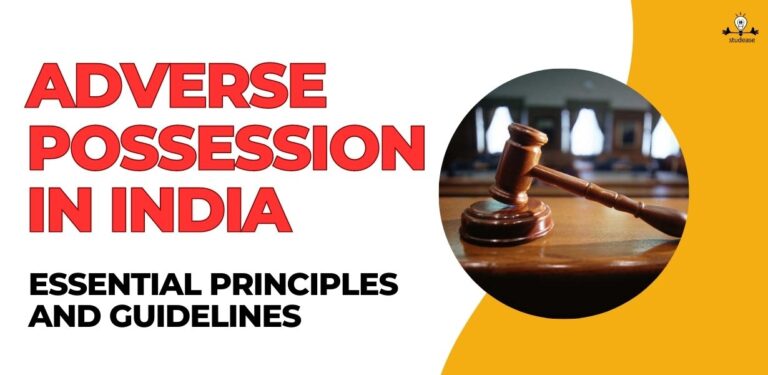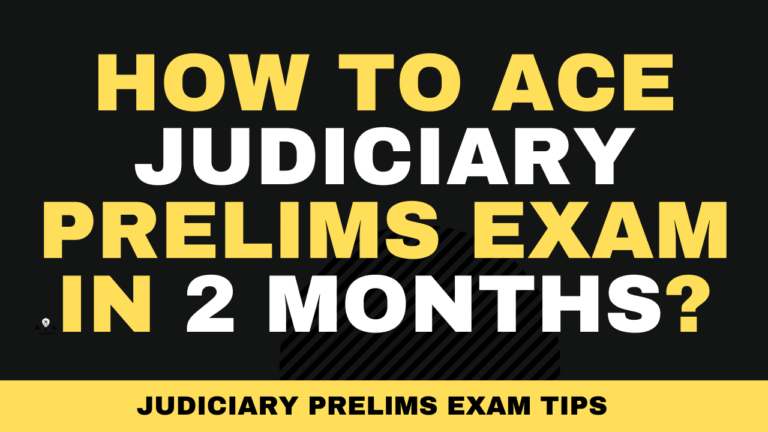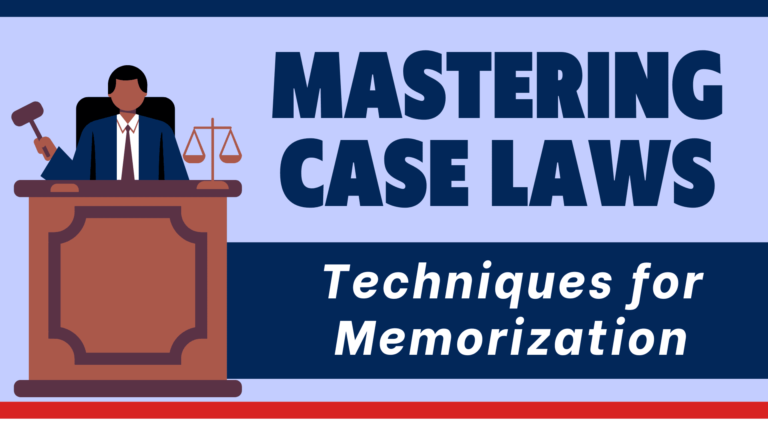Top 10 Tips to Crack Competitive Exams 2024: Expert Advice for Success

Navigating a competitive exam can be challenging, particularly when faced with a pool of formidable candidates. However, with the right tips and tricks, you can boost your confidence and increase your chances of success.
In this article, we will provide you with some valuable insights on how to prepare for and ace your competitive exam.

You should familiarize yourself with the job requirements and responsibilities, and prepare examples of how you meet these criteria.
Secondly, practice makes perfect. Mock Questions are an excellent way to prepare for your competitive exam. This will help you identify areas where you need to improve and refine your answers. Remember, the more you practice, the more confident you will feel on the day of the exam.
Page Contents
10 Tips to Crack Competitive Exams 2024

Cracking the Competitive Exam can be a daunting task, but with the right preparation and mindset, you can achieve success.
Here are 10 tips that can help you crack the Judiciary Exam 2024:
- Understand the Exam Pattern: Before starting your preparation, it is essential to understand the exam pattern and syllabus. This will help you plan your preparation and focus on the important topics.
- Know the Current Affairs: Keeping yourself updated with the latest news and events is crucial for cracking the Judiciary Exam. Make sure to read newspapers, watch news channels, and follow current affairs magazines.
- Practice Previous Year Question Papers: Solving previous year question papers can give you an idea of the exam pattern, types of questions, and difficulty level. It will also help you identify your weak areas and work on them.
- Take Mock Tests: Mock tests are an excellent way to evaluate your preparation and identify the areas where you need improvement. You can find several online mock tests and practice papers.
- Focus on Legal Knowledge: The Judiciary Exam tests your legal knowledge, so it is essential to have a strong foundation in the subject. Make sure to read the Constitution, IPC, CrPC, Evidence Act, and other relevant laws.
- Improve Your Writing Skills: The Judiciary Exam also tests your writing skills, so make sure to practice writing essays, judgments, and other legal documents.
- Time Management: Time management is crucial for the Judiciary Exam. Make sure to allocate enough time for each section and question. Also, avoid spending too much time on a single question.
- Stay Calm and Confident: It is natural to feel nervous before the exam, but staying calm and confident can help you perform better. Practice meditation, deep breathing, or any other relaxation techniques that work for you.
- Dress Appropriately: Dressing appropriately for the exam can also boost your confidence. Make sure to wear comfortable and formal clothes that make you feel confident.
- Reach the Exam Center on Time: Last but not least, make sure to reach the exam center on time. Arriving late can cause unnecessary stress and affect your performance.
By following these tips, you can increase your chances of cracking the Judiciary Exam 2024. Remember, hard work, dedication, and a positive attitude are the keys to success.
Understanding the Exam Format
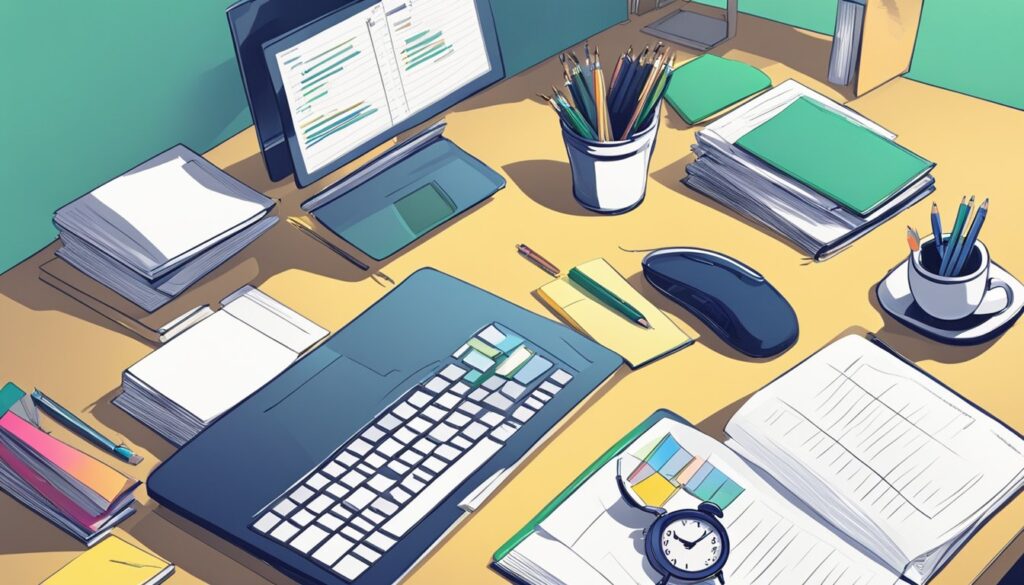
To crack a competitive exam, it is essential to have a good understanding of the exam format. This includes knowledge of the exam pattern and syllabus. Here are a few tips to help you understand the exam format:
Exam Pattern
The exam pattern refers to the structure of the exam, including the number of questions, types of questions, and duration of the exam. It is important to be familiar with the exam pattern before you start preparing for the exam.
One way to understand the exam pattern is by studying previous year’s question papers. This will give you an idea of the type of questions that are usually asked, the difficulty level, and the time required to solve each question.
Syllabus
The syllabus is a list of topics that will be covered in the exam. It is important to have a good understanding of the syllabus before you start preparing for the exam. This will help you focus on the important topics and avoid wasting time on irrelevant topics. This is a very important factor to consider.
One way to understand the syllabus is by studying the exam notification or brochure. This will give you a detailed list of topics that will be covered in the exam.
Tips for Understanding the Exam Format
- Study previous year’s question papers to understand the exam pattern.
- Read the exam notification or brochure to understand the syllabus.
- Make a study plan based on the exam pattern and syllabus.
- Focus on important topics and avoid wasting time on not so important topics.
- Practice solving sample papers and mock tests to get familiar with the exam pattern and syllabus.
By understanding the exam format, you can prepare more effectively for the exam and increase your chances of cracking it.
Developing a Study Plan
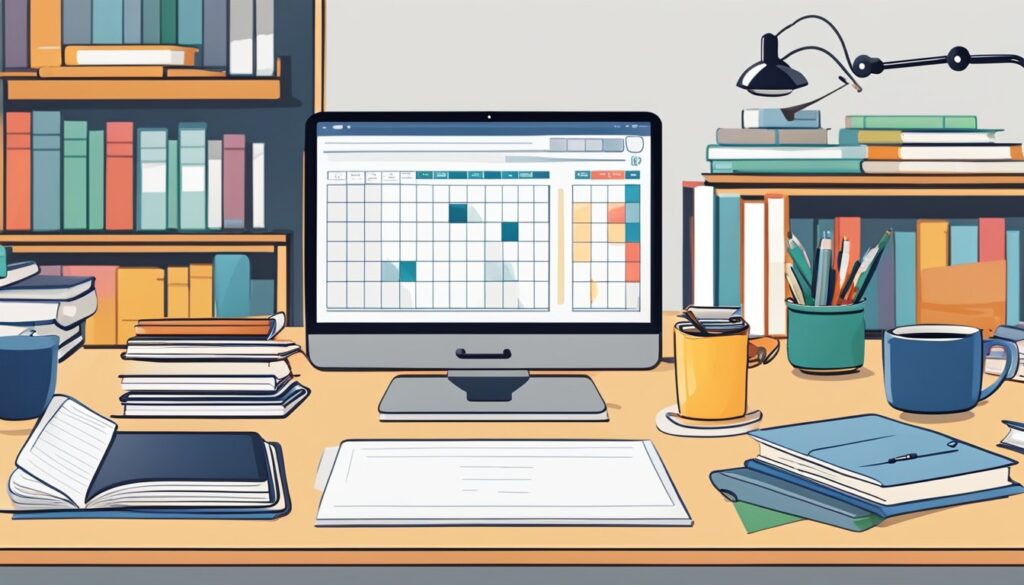
To crack a competitive exam interview, it is crucial to have a well-planned study plan. Here are some tips to help you create an effective study plan.
Timetable Creation
Creating a timetable is the first step towards developing a study plan. The timetable should be realistic and should take into account your daily routine, work schedule, and other commitments.
It is important to allocate enough time for each subject and topic. You can use a table or a calendar to create your timetable.
Time Management
Time management is crucial to stick to your study plan. You should allocate time for breaks, revision, and practice tests.
It is important to prioritize your tasks and focus on the most important topics. You should also avoid procrastination and distractions while studying.
Study Material Selection
Selecting the right study material is important to crack the competitive exam interview. You should choose study material that is relevant, up-to-date, and easy to understand.
You can refer to books, online resources, and coaching materials. It is also important to revise and practice regularly to reinforce your knowledge.
By following these tips, you can develop an effective study plan that will help you crack the competitive exam interview. Remember to stay focused, motivated, and disciplined throughout your preparation. Good luck!
Effective Preparation Strategies
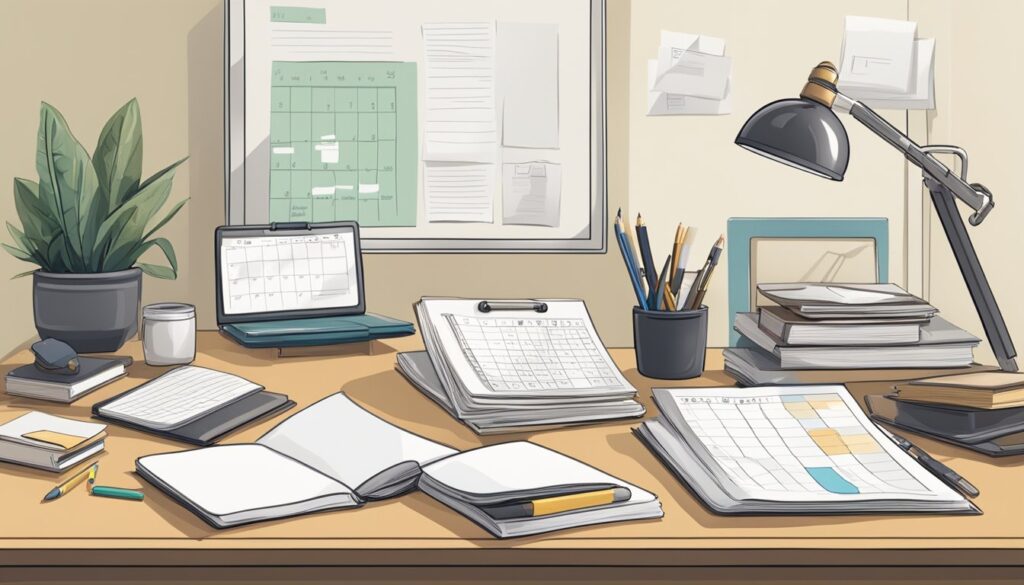
Prioritize topics based on strengths and weaknesses, using active learning techniques like summarizing and practicing regularly. Seek clarification when needed and stay organized to maximize focus.
Self-Study Techniques
Self-study is an essential part of exam preparation. It helps you understand the concepts better and improves your retention power. To make the most of your self-study time, try the following techniques:
- Create a study schedule and stick to it.
- Make notes of important topics and revise them regularly.
- Use diagrams, flowcharts, and mind maps to simplify complex topics.
- Solve practice questions to test your understanding.
Focused Practice
Focused practice is key to improving your skills and knowledge. Here are some tips to help you practice effectively:
- Identify your weak areas and focus on improving them.
- Practice questions from previous years’ papers to get an idea of the exam pattern.
- Set a timer and practice solving questions within the given time limit.
- Analyze your mistakes and learn from them.
Regular Revisions
Regular revisions are crucial to retaining what you have learned. Here are some ways to make revisions more effective:
- Revise the topics you have studied at regular intervals.
- Use flashcards to revise important formulas and concepts.
- Test yourself by solving questions from previous years’ papers.
- Make a summary of the topics you have studied and revise them before the exam.
Mock Test Utilization
Mock tests are an excellent way to prepare for the exam. They help you understand the exam pattern, improve your time management skills, and identify your weak areas.
Here are some tips to make the most of mock tests:
- Take mock tests regularly to get used to the exam pattern.
- Analyze your performance and identify your weak areas.
- Practice solving questions within the given time limit.
- Learn from your mistakes and revise the topics you have studied.
By following these effective preparation strategies, you can improve your chances of cracking the competitive exam interview. Remember to stay focused, practice regularly, and revise consistently to achieve success.
Enhancing Test-Taking Skills

Cracking a competitive exam interview requires not only knowledge but also the right set of skills. Test-taking skills are a crucial part of the process. Here are some tips to help you enhance your test-taking skills.
Answering Strategies
Answering strategies are essential to maximize your score. First, read the instructions carefully to understand the format of the test. Then, read the questions and try to understand what they are asking.
If you don’t know the answer, move on to the next question and come back to it later. Don’t waste too much time on a single question. Use your best judgment to eliminate wrong answers and guess if necessary.
Time Allocation
Time management is crucial in competitive exams. You should allocate your time wisely to ensure that you answer all the questions.
Start with the easy questions and leave the difficult ones for later. Use a watch or clock to keep track of time. Don’t spend too much time on any one question. If you don’t know the answer, move on to the next question and come back to it later.
Handling Pressure
Competitive exams can be stressful, but it’s important to stay calm and focused. Take deep breaths and stay positive. Don’t let the pressure affect your performance. Remember to take breaks if necessary. Use the time to relax and clear your mind.
Stay confident and believe in yourself. With practice, you can develop the skills to handle pressure and perform well in competitive exams.
Enhancing your test-taking skills is essential to crack a competitive exam interview. By using these strategies, you can improve your performance and maximize your score. Remember to practice, manage your time wisely, and stay calm under pressure. Good luck!
Physical and Mental Well-being
To crack a competitive exam interview, it’s not only important to have a strong knowledge base but also to be physically and mentally fit. Here are some tips to help you maintain your physical and mental well-being:
Importance of Sleep
Getting enough sleep is crucial for your overall health and well-being. Lack of sleep can lead to fatigue, decreased concentration, and poor memory retention. It’s recommended that adults get at least 7-9 hours of sleep per night. To improve your sleep quality, try to establish a regular sleep schedule, avoid caffeine and alcohol before bedtime, and create a relaxing sleep environment.
Balanced Diet
Eating a balanced diet is important for maintaining your physical and mental health. A balanced diet should include a variety of fruits, vegetables, whole grains, lean proteins, and healthy fats. Avoid consuming too much sugar, salt, and processed foods.
Drinking plenty of water and staying hydrated is also important for your overall health.
Stress Management
Stress can negatively impact your physical and mental health. To manage stress, try to identify the source of your stress and find ways to reduce it. This may include practicing relaxation techniques such as deep breathing or meditation, engaging in physical activity, or seeking professional help if needed. It’s also important to take breaks and engage in activities that you enjoy to help reduce stress levels.
By prioritizing your physical and mental well-being, you can improve your chances of success in a competitive exam interview. Incorporate these tips into your daily routine to help you stay healthy and focused.
Reviewing Previous Exams
One of the most effective ways to prepare for a competitive exam interview is by reviewing previous year question papers. This will give you an idea of the type of questions that are asked, the difficulty level, and the pattern of the exam. Here are two ways you can use past papers to your advantage:
Analyzing Past Papers
Analyzing past papers is a great way to identify the areas where you need to focus your preparation. Make a list of the topics that are frequently asked and prioritize them based on your strengths and weaknesses. This will help you allocate your time and resources more effectively.
You can also use past papers to identify the type of questions that are asked. Are they conceptual or factual? Are they scenario-based or theoretical? This will give you an idea of the type of answers that are expected and help you prepare accordingly.
Learning from Mistakes
Mistakes are a great way to learn. When you analyze your past papers, make a note of the questions that you got wrong. Try to understand why you got them wrong and what you could have done differently. This will help you avoid making the same mistakes in the future.
It’s also important to learn from the mistakes of others. Discuss the past papers with your peers or mentors and try to understand their thought process. This will give you a different perspective and help you broaden your knowledge.
By reviewing previous year question papers and analyzing your mistakes, you can gain a deeper understanding of the exam and improve your chances of cracking the interview.
Handling the Interview
Preparing for a competitive exam interview is not just about studying hard and knowing your subject matter.
It’s also about presenting yourself well and articulating your thoughts effectively. Here are a few tips to help you handle the interview with confidence:
Articulating Your Thoughts
During the interview, you will be asked questions to test your knowledge, problem-solving skills, and ability to communicate effectively.
To answer these questions, it’s important to be clear and concise in your responses. Here are some tips to help you articulate your thoughts:
- Take a moment to gather your thoughts before answering a question. This will help you organize your ideas and ensure that you provide a complete and accurate response.
- Use clear and concise language. Avoid using jargon or technical terms that the interviewer may not understand.
- Provide concrete examples to support your answers. This will help the interviewer understand your thought process and demonstrate your expertise in the subject matter.
Discussing Your Preparation
The interviewer may also ask you about your preparation for the exam. This is an opportunity to demonstrate your commitment to the subject matter and your ability to prepare effectively.
Here are some tips to help you discuss your preparation:
- Be honest about your preparation. If you haven’t had a chance to study as much as you would have liked, be upfront about it. Honesty is always the best policy.
- Discuss your study methods. Talk about the resources you used to prepare, such as textbooks, online courses, or study groups.
- Highlight any challenges you faced during your preparation and how you overcame them. This will demonstrate your resilience and problem-solving skills.
Remember, the interview is an opportunity to showcase your knowledge and skills. By presenting yourself well and articulating your thoughts effectively, you can increase your chances of success.
Closing Tips

Final Review
Before you head into the interview, it’s important to take a moment to review your notes and refresh your memory on any important points you want to make.
Make sure you have a clear understanding of the job requirements and the company culture. If you have any doubts or questions, now is the time to address them. This will show that you are consistent and persistent in your pursuit of the job.
Staying Organized and Disciplined
Staying organized and disciplined during the interview process is crucial. Make sure you have all the necessary documents and materials, such as your resume, cover letter, and references, with you.
Arrive early to the interview location to avoid any last-minute stress. During the interview, take notes and listen carefully to the interviewer’s questions. This will help you stay focused and on track. Remember to maintain good posture and make eye contact with the interviewer. This shows that you are confident and knowledgeable about the job and the company.


